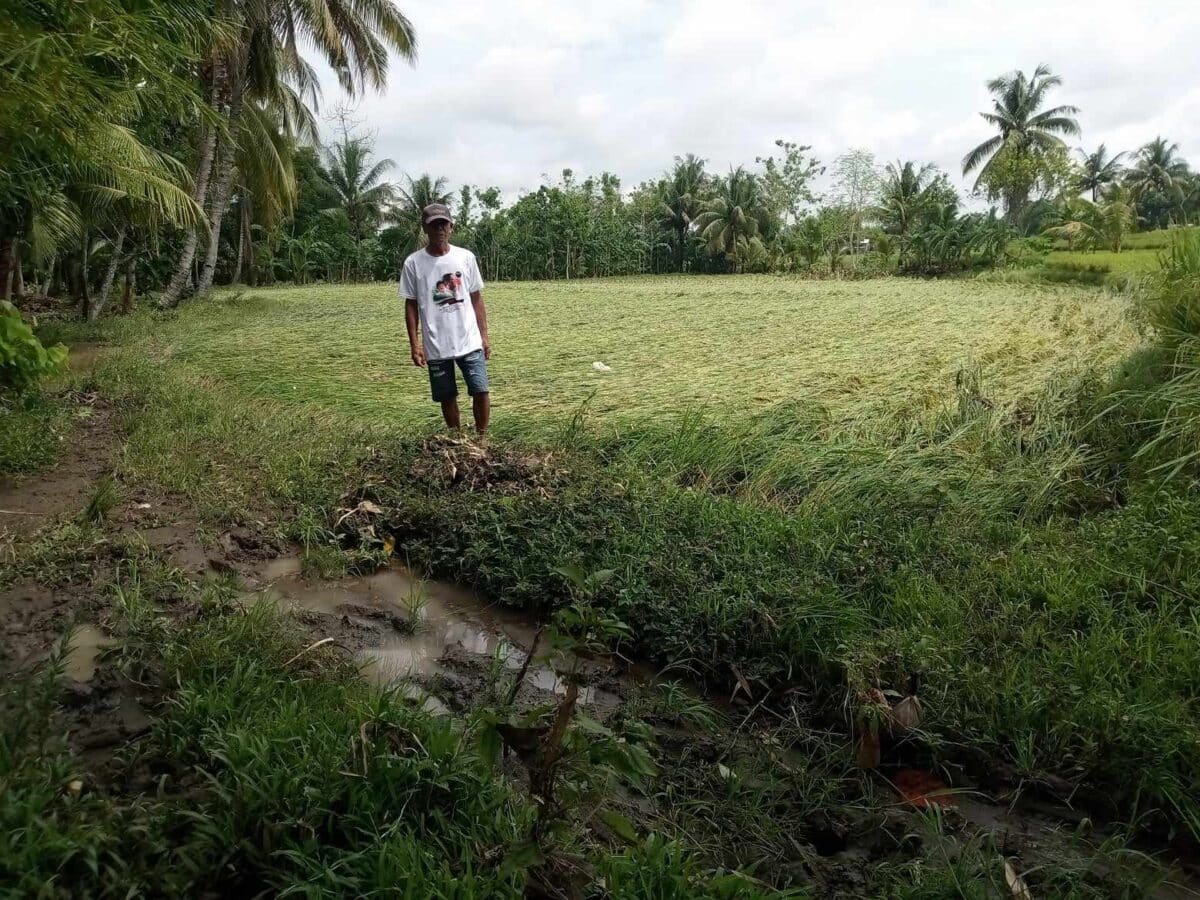
AFTERMATH A rice discipline is flattened after flash floods hit Tulunan, Cotabato. — WILLIAMOR MAGBANUA
MANILA, Philippines — President Ferdinand Marcos Jr. on Friday unveiled the federal government’s low-interest credit score line that rice farmers can use to purchase seeds, fertilizers, pesticides, and different farm inputs.
On his 67th birthday, the President launched in Nueva Ecija the Division of Agriculture’s (DA) “Agri-Puhunan at Pantawid Program (APP)” and oversaw the distribution of 9,832 certificates of condonation with the discharge of mortgage (Cocrom) overlaying P277 million in money owed of land reform beneficiaries.
In his speech in Guimba, Nueva Ecija, through the launch of the low-interest credit score facility, the President mentioned farmers needs to be acknowledged and aided as they perform their function in guaranteeing meals safety for the nation.
“I’m conscious that regardless of the federal government’s packages, a lot of you might be nonetheless struggling and are pressured to tackle loans with excessive rates of interest simply to purchase seeds, fertilizers and pesticides,” he mentioned.
He led the distribution of Interventions Monitoring Playing cards to pick out rice farmers, which can be utilized to entry low curiosity loans to buy farm inputs and pay for companies from accredited retailers.
Article continues after this commercial
In a later go to to Palayan Metropolis, Mr. Marcos assured farmers that the federal government will proceed selling the welfare, rights and enchancment of the agriculture sector.
Article continues after this commercial
“My solely request is that you simply proceed making your land productive and that you simply be a part of within the efforts to enhance your communities. Allow us to work collectively in bettering our nation. This fashion, we will all attain our goals,” the President mentioned.
P3-B seed fund
The APP credit score line has an preliminary funding of P3 billion from the DA and the Growth Financial institution of the Philippines. The DA additionally signed offers with Planters Merchandise Inc. and the DBP for the implementation of the APP.
The APP will supply a mixture of low-interest loans and a month-to-month subsistence allowance for rice farmers.
For the dry cropping season, the APP will supply credit score strains to farmers and cooperatives behind 50,000 hectares of rice in Luzon. It targets to succeed in rice farmers tilling 1.2 million hectares nationwide.
A rice farmer tilling one hectare of farmland will obtain P58,000. This features a P8,000 month-to-month subsistence allowance to be given for 4 months, and a P14,500 authorities subsidy per hectare.
In a press release, Agriculture Secretary Francisco Tiu Laurel mentioned the APP program is a part of the federal government’s measures to “make farming extra bankable, appeal to extra and greater investments, nurture a brand new era of farmers by uplifting their residing circumstances and guarantee nationwide meals safety and sustainability within the Philippines.”
After the launch of the APP, Mr. Marcos then visited Palayan Metropolis the place he led the distribution of 9,832 Cocroms to over 6,000 land reform beneficiaries.
The certificates coated P277 million in money owed of agrarian reform beneficiaries farming 10,450 hectares of land within the province.
‘Mere scrap of paper’
The mortgage condonation is remitted by regulation beneath Republic Act No. 11953, or the New Agrarian Emancipation Act, which Mr. Marcos signed final yr.
The distribution of Cocroms goals to “erase all unpaid principal amortizations, pursuits, and surcharges on agricultural lands awarded beneath the federal government’s agrarian reform program,” based on the Division of Agrarian Reform (DAR).
The DAR additionally distributed P41 million in agri-credit checks to 480 land reform beneficiaries representing 12 agrarian reform organizations.
However the Kilusang Magbubukid ng Pilipinas (KMP) dismissed the federal government’s debt condonation program as a “mere scrap of paper.”
The KMP mentioned, in a press release, that “Cocroms are usually not even land titles, and even farmers in possession of land titles will be ejected from the land.”
“So long as land monopoly stay and haciendas exist, there shall be no real emancipation of farmers and ARBs (agrarian reform beneficiaries). Real land reform will persist as a simply and democratic demand of Filipino farmers,” mentioned Danilo Ramos, chair of KMP.


